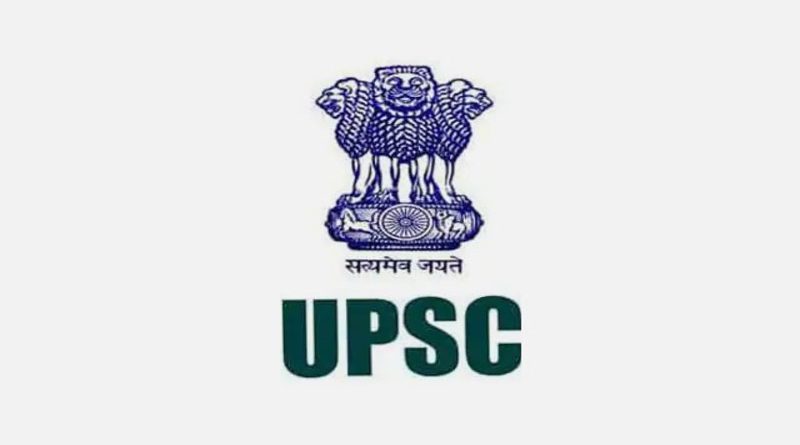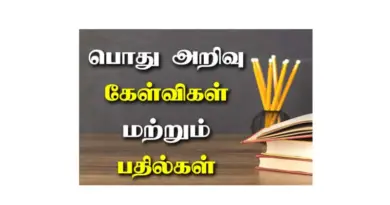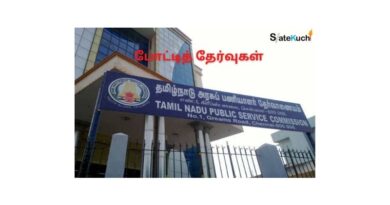UPSC Personality test tips!
The politicians may be the masters but the bureaucrats are the real rulers. This is the tagline used to quote the executives assigned in civil services both at central and state level. This is because these civil servants are the policymakers which are just monitored and communicated to the people by the politicians. Once the policy is announced, again the bureaucrats play a major role in implementing the same. That is why civil services are known to be the high level and prestigious posts of the country.
Union Public Service Commission and State Service Commissions of respective states are the authorized bodies to recruit officers for these important posts, at central and state level respectively. Civil services examinations consist of three stages – Preliminary, where the general intelligence of the candidates are checked through multiple choice questions based on general studies and current affairs. As a former aspirant and a mentor presently, I would say that this stage is the toughest of all because its syllabus is so wide and the questions are highly unpredictable.
The Second stage is the Mains examination, where a deeper and wider understanding of the general awareness of the candidates are checked through descriptive patterned exams. I would say that this stage is easier of all the three since the topics can be predicted to some extent or at least it can be managed. Next comes the Personality test, the final stage which is neither easy nor tough. The first two stages for this year is already completed and the candidates are looking forward to the result of the mains and in full swing preparing for the interview.
Confusions that arise prior to the personality test:
The pressure that arises first is the fear to face PT because the earlier stages are written type but in PT the candidates have to face a panel of five eminent experts consisting of one chairman and four-panel members. Each one will be a trained master in their domain and that very thought will make the aspirants feel nervous. The second issue is with the syllabus about what to prepare and how to prepare. Thirdly, about the communicating medium because many are not fluent with English and that will make them tremble. Finally comes the confusion in selecting the attire.
Chasing the fear in you:
As the mains exam gets over and aspirants start preparing for the PT, one of the first things they do is to search about the panels of PT and to read about the past experiences by their seniors with each panel. Negative experiences strike the most and the aspirants start developing a repelling nature with such panels, which is a wrong procedure. This is because if they happen to face the same panel in PT then on hearing this itself can break their confidence and they get prepared themselves to lose, whatever the actual situation is going to be.
Candidates should, first of all, know that PT meaning personality test is just to test your personality, that is the inner attitude of yours. Written examinations have proved your intelligence so PT is just to test your inner perspective on the happenings around you. Next, it is not necessary that you are going to experience the same as that of your seniors, because the panel may not repeat the same questions to you, instead the questions will be based on your background and area of interests. So have confidence in yourself, prepare well about your bio-data and never get any preconceptions on the panels.
Doubts on what and how to prepare:
Here again comes the mistake people did in the earlier issue, that is going through the panels and past experiences. Few will go to another level of analyzing the social network accounts of the panel members to know their interests and prepare accordingly to it. They forget that it is a personality test, where a candidate’s outlook on social issues is to be examined. So the syllabus is in your bio data which you fill by yourself and send it to UPSC. The panel members will be provided with the same and the questions are to be raised from the same.
To make this stage easier, your first step is to fulfill the biodata honestly with genuine pieces of information which takes very less effort to prepare because you are well familiar with the things you have filled. Few aspirants make a big mistake of filling with exaggerated details to create an impression forgetting that the same may get them trapped when tricky questions are posed by the members. It also needs to do extra homework to cover up the false data provided by you. So better to avoid such wrongdoings and try to get a deep understanding of the details you are genuinely familiar with.
Getting a hold on the medium of communication:
Few aspirants prefer to attend the examination in their mother tongue, so they are given a choice to attend PT in their mother tongue itself. Generally, these people will not face any problem in delivering their points but the issue arises when the assigned translator makes a misinterpretation of your point and delivers a wrong notion of it. Fearing on this, many prefer to give examination in the English medium itself but starts panicking on oral communication with the panel members because of their weak hold on the fluency.
I have been to three PTs and even though I did my education completely in English medium, I felt nervous in facing the panels because I felt that I lost my English fluency due to not communicating in it for a prolonged period of time. Also thought that it may be a black mark in my performance. But the real-time experience was totally different, the panel members were looking for the answers in a very simple language because what they actually needed was our perception and not our command over the language. So no need to worry about the language instead try to communicate your point clearly in a layman language because your point is going to impress them in reality.
Appearance speaks about your personality:
There is a famous saying that “The first impression is the best impression” meaning that whatever is projected initially is going to lead the entire process. So as you enter the interview hall the first thing that is going to strike the minds of the panel members is your outer appearance. That is nothing but the selection of your attire. There is no particular dress code but conventionally male aspirants dress up formally with full hand shirts and neat pants of mild combination and with a pair of formal shoes. Few even wear a tie and coat to give a pucca official look. Female candidates preferably wear cotton saree while few wears formal salwars.
Aspirants should remember one thing that your outfit is important but that does not mean that you should overdo. PTs are always conducted during the summer season and it is common sense that wearing tie and coat is totally irrelevant. Be it male or female, the dressing should be formal at the same time most importantly should be comfortable, so that you can feel the ease while attending PTs. If you are not comfortable then it is obvious that you are going to miss out in making your points clearly. The formal and neat look is to make the panel members realize how serious you are about the examination, so avoid unnecessary overdo.
A quick summary of tips:
As said earlier, make a genuine fill up of your bio-data and try to concentrate on the information given in it. Apart from it, you can expect anything from the panel, be it current or purely conventional. So keep your mind free to attend any question and try to give the best answer as possible. Even if you are not sure about the topic, be bold to express that you are not aware of it because the panel members will be ready to appreciate your honesty rather getting irritated by the cover-ups you do to manage the question. Blabbering may lead to a negative impression, and it is not a rule that you should know everything and answer it. So open up your mind and try to give valid points or politely accept that you are unaware.
Practice with certain things like your body language, eye contact, voice modulation etc. Be polite in answering but be bold at the same time. If you are not sure about any question get the courage to ask for its repeat or take a couple of seconds to accumulate your points and then answer with confidence. Do not jump in between different standpoints, rather stick on to the viewpoint you believe. If the panel members try to correct you then politely accept it rather arguing with them. Try to frame solutions to the social issues you study because that is what expected from you at the end of the day.
Need to be done in the last hour:
Finally, PT is that one stage where you can flip the coin to either side by your performance. Prepare well and be confident in your views and if you are really smart enough then you can even lead the PT in a way that is convenient to you but over smartness may even lock you in your own trap. Attending mock interviews may help you in getting yourself practiced with the PT atmosphere, but care should be taken that you are not demotivated at any cost. So be careful in attending mock interviews. You can even make a video of your practice and later analyze about what all improvements you need to do.
Do not forget that self-motivation is the best one and keep yourself cheered up always. You should realize one thing that you have crossed the earlier two stages surpassing lakhs of people because you have enough potential. Therefore be confident in your caliber and try to keep your mind and body healthy and face the PT without any doubt or expectation. Give the best you can, you will be returned back with what you deserve. All the best to the future executives of the country.




